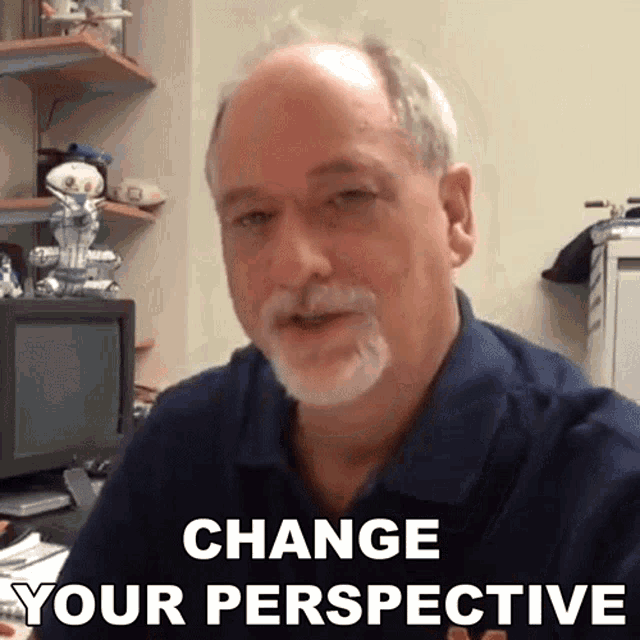Have you ever had a moment when the puzzle pieces of your life suddenly clicked together? Genesis 45 delivers the ultimate "aha moment" as Joseph finally reveals his identity to his brothers! "I am Joseph!" he announces, and his brothers stand speechless with shock. In three simple words, decades of mystery unravel. The brother they thought dead is not only alive but has become their salvation.
The man they sold into slavery now offers them deliverance from famine. What they intended for evil, God transformed into the preservation of nations. This isn't just an ancient family reunion—it's a masterclass in divine perspective that reframes our darkest chapters as part of God's redemptive storyline.
The Choreography of Revelation and Reconciliation
Genesis 45 moves with the emotional intensity of long-delayed disclosure. "I am Joseph! Is my father still living?" This explosive revelation sets the stage for everything that follows. The pattern is revealing:
Identity revealed → Fear confronted → Divine purpose explained → Reconciliation offered → Restoration initiated
This isn't just narrative resolution – it's exposing something profound about how God works through human events. Each moment of pain carries potential purpose beyond our limited vision. Each scene builds upon the previous one, creating an intricate picture of divine sovereignty working through human choices.
Breaking Down the Chapter
Verses 1-3: Joseph reveals himself and his brothers are terrified
Verses 4-8: Joseph explains God's sovereign purpose in their actions
Verses 9-15: Plans made to relocate Jacob's family during the famine
Verses 16-20: Pharaoh endorses Joseph's plan with royal generosity
Verses 21-28: Jacob learns Joseph is alive and his spirit revives
But here's what's fascinating – notice the three-part movement? The chapter begins with revelation ("I am Joseph"), moves to reinterpretation ("God sent me"), and culminates in restoration ("You shall be near me"). It progresses from shock to understanding to embrace, from past trauma to present purpose to future provision.
The Human Element: Joseph's Divine Perspective
When Joseph finally speaks openly with his brothers, we witness one of Scripture's most profound theological statements about suffering. "It was not you who sent me here, but God" (Genesis 45:8).
This is revolutionary. The same man who had every right to harbor resentment instead offers theological reframing. Joseph has evolved from viewing his life through the lens of human betrayal to seeing it through the lens of divine purpose. Without minimizing the brothers' sin, he elevates God's sovereign intent.
DIVINE PERSPECTIVE REFRAMES PERSONAL PAIN
"You intended to harm me, but God intended it for good to accomplish what is now being done, the saving of many lives." — Genesis 50:20
While this famous quote actually comes from Genesis 50, it perfectly captures what Joseph demonstrates in chapter 45. His ability to see divine purpose behind human cruelty changes everything. The pit of Dothan becomes the pathway to Pharaoh's palace. Being forgotten in prison becomes preparation for national leadership.
This perspective doesn't erase the years of pain Joseph endured. It doesn't minimize the loneliness, the false accusations, or the abandonment. Instead, it layers divine meaning over human suffering, allowing Joseph to reconcile with his brothers without bitterness or revenge.
Here's the transformative truth: The most powerful healing often comes not through forgetting our pain but through reframing it in light of God's larger purpose. Joseph didn't deny what his brothers had done; he reinterpreted it through a divine lens. And that perspective didn't just free him from bitterness—it enabled him to offer life-giving provision to the very people who once sought to destroy him.
Christ as our Revealer
Genesis 45 gives us a powerful picture of Christ as the one who reveals both Himself and God's greater purpose to us. Just as Joseph unveiled his true identity to his astonished brothers, Jesus reveals Himself to us, often when we least expect it and sometimes after seasons where we've felt abandoned or confused.
The parallels run deeper than mere disclosure. Joseph's words, "Come close to me" (v.4), echo Christ's invitation to draw near even after our failures. Joseph's perspective that "God sent me ahead of you to preserve for you a remnant" foreshadows how Jesus' suffering wasn't random but purposeful for our salvation.
Most powerfully, Joseph's provision for his brothers despite their past betrayal mirrors Christ's gracious provision for us despite our sins against Him. The brothers who once stripped Joseph of his robe now receive new garments from him (v.22)—just as we who were spiritually destitute receive Christ's righteousness.
Perhaps most striking is how Joseph's revelation caused initial fear in his brothers. They were "terrified at his presence" (v.3)—a reaction that mirrors humanity's natural response to divine revelation. Yet Joseph quickly transforms their terror to comfort with his invitation to "come close," showing us how perfect love casts out fear, both in human reconciliation and divine revelation.
WALK THRU TRIVIA CHALLENGE
Question: In Genesis 45, what special gift did Joseph give to his brother Benjamin that was different from what his other brothers received?
A) A gold ring bearing Pharaoh's seal
B) Five times more silver than the others
C) Five sets of clothes instead of one set
D) His own personal chariot
Check your answer below!
Answer: C) Five sets of clothes instead of one set
Genesis 45:22 says, "To each of them he gave new clothing, but to Benjamin he gave five sets of clothes and three hundred shekels of silver." This special treatment of Benjamin continues the pattern we've seen in previous chapters.
THE EMOTIONAL INTENSITY OF DIVINE REVELATION
Genesis 45 contains more emotional expressions than perhaps any other chapter in Genesis. Three times we're told about weeping:
"Joseph could no longer control himself" (v.1)
"He wept so loudly that the Egyptians heard him" (v.2)
"Then he threw his arms around his brother Benjamin and wept, and Benjamin embraced him, weeping" (v.14)
"He kissed all his brothers and wept over them" (v.15)
This emotional intensity isn't just narrative detail—it reveals something profound about revelation and reconciliation. Divine disclosure isn't merely intellectual—it's deeply emotional. When God reveals Himself and His purposes, it touches not just our minds but our hearts.
The progression is significant too. Joseph's weeping moves from private (controlling himself before), to public (weeping loudly), to mutual (weeping with his brothers). True revelation leads to shared emotion, to weeping together, to bearing one another's burdens.
Your Turn to Walk Through
As you read Genesis 45 again (and I encourage you to do so), consider:
How might Joseph's perspective on his suffering help you reframe painful chapters in your own story?
Where do you see yourself in this story—speechless like the guilty brothers, or offering restoration like Joseph?
What "great reveal" might God be preparing in your life—a moment when seemingly disconnected events suddenly show their divine purpose?
Remember, this isn't just an ancient family reunion—it's a pattern of how God weaves purpose through pain, revelation through waiting, and restoration through what once seemed irreparably broken.
Join the Conversation
Genesis 45 gives us one of Scripture's most powerful examples of redemptive perspective. Like Joseph's brothers, we often operate with tunnel vision, seeing only the immediate consequences of our actions or circumstances. We interpret our lives through limited human understanding—this is bad, this is good, this makes sense, this doesn't.
Giving your life to Jesus means receiving a new interpretive lens for your story. It means discovering, sometimes years later, how chapters that seemed pointless or painful were actually pregnant with purpose. It means trusting that even when human intentions are flawed or evil, God's intentions remain redemptive and good.
The question isn't whether your story contains chapters of suffering—we all have those. The question is whether you'll allow God to reveal the greater purpose behind them, transforming your perspective from "you did this to me" to "God sent me ahead for this."









